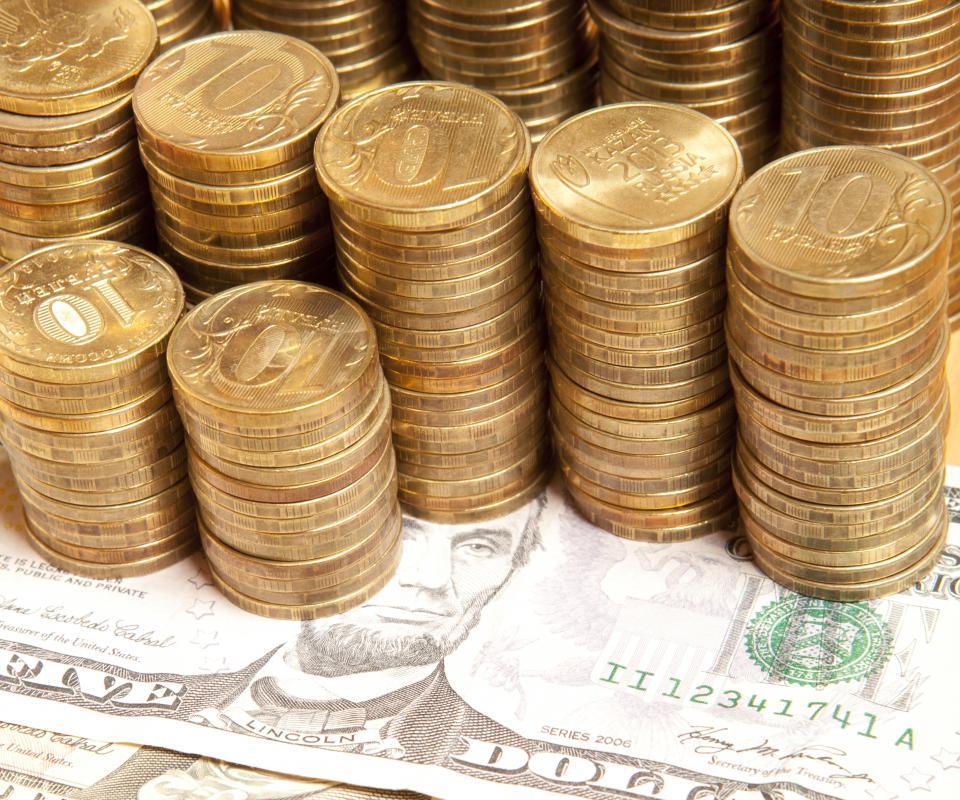At WiseGEEK, we're committed to delivering accurate, trustworthy information. Our expert-authored content is rigorously fact-checked and sourced from credible authorities. Discover how we uphold the highest standards in providing you with reliable knowledge.
What Is a Gold Reserve?
A gold reserve refers to a stockpile of the metal that is generally held by a nation. It is therefore considered a national asset and is commonly overseen by a nation's central bank. One notable exception is the case of the International Monetary Fund (IMF), which has one of the largest stockpiles in the world. At one time, these stockpiles were used to determine how wealthy a country was because the amount of currency issued was linked to the amount of gold held. In modern times, gold is considered to be more of an alternative to holding large quantities of currency.
The tendency to stockpile gold and to use it as a measurement of wealth extends back for centuries. There was a time when the global financial system operated according to what is known as the gold standard. This was a monetary system that directly connected the amount of gold in a country's reserve with the amount of currency that it produced. The logic behind this was that if the gold were redeemed, the equal value of currency should be received for it.

Although this monetary system was replaced, countries have continued the practice of maintaining stockpiles. Just as people hold quantities of money in a savings account in case they need it in the future, many nations maintain a gold reserve as one their financial assets. Another similarity is that banks are often the guardians of individuals financial assets and, likewise, a nation's central bank generally is responsible for the gold reserve.

There are a number of reasons why a gold reserve is viewed as a good idea. To begin with, a stockpile of gold is often considered protection in the event that a particular currency may lose a significant portion or all of its value. Consider, for example, the euro, which is a currency used by most of Europe. If that currency became useless, those countries with a gold reserve would still have some financial assets.
Another benefit of a gold reserve is that it is readily transferable. Gold is a metal that can be exchanged for financial value in most countries around the globe. Nations can therefore use their gold reserve as collateral against loans. They can also use these stockpiles to satisfy debts, but doing so is considered rare. It is common for these stockpiles to be held for decades and for countries to continue adding to them.
AS FEATURED ON:
AS FEATURED ON:












Discussion Comments
@Logicfest -- Senator Ron Paul would disagree with you. He has advocated phasing in replacing "fiat" currency with "hard" currency such as gold and silver. His point is that such hard currency would be worth considerably more than currency by fiat. The value of currency would be tied to commodities and that means value floats along with how much those commodities are worth.
That may not be a return to a "pure" gold standard, but it is an acknowledgment that valuing currency by gold and other commodities can curb inflation and force a realistic value of what a dollar is worth. The question, then, is whether the gold standard was flawed or whether the government got into trouble by borrowing more money than it could back with its gold reserves.
@Vincenzo -- while there are good arguments for putting a gold standard in place, they are all moot as such a feat would be impossible. Remember that the gold standard was done away with in 1971 in the United States because there was a fear that American currency was overvalued, so nations that had invested in our country started cashing in on the debts owed them by settling their debts by taking gold in lieu of cash that the government owed them.
After that "run," the gold reserves in the nation would only cover about a third of the debt it owed. To keep things from going south, the government abandoned the gold standard to avoid economic cash. We've been on the fiat system since then -- money is backed by the full faith and credit of the nation.
Now, here's why it is impossible to go back to the gold standard. The United States government does not have near enough in gold reserves to back American currency that is in circulation. In other words, if you want to talk about extreme inflation that is exactly would result when that dollar in your pocket is worth about 10 cents because it is not matched on a "dollar per dollar" basis by gold. That fact, alone, means that the nation can never return to the gold standard in spite of the positives pointed out by proponents.
You will still hear people claim that the United States should never have left the gold standard. The gold standard, after all, makes perfect sense when one considers that our currency is backed by nothing -- it has value because the government says it has value (so, there!)
Still others maintain that inflation has become a way of life because the government can simply print more money when times are tough, claim the cash has value and then fling it at the market. The ability to print cash at will, they argue, means it is increasingly worth less and inflation takes hold.
Post your comments